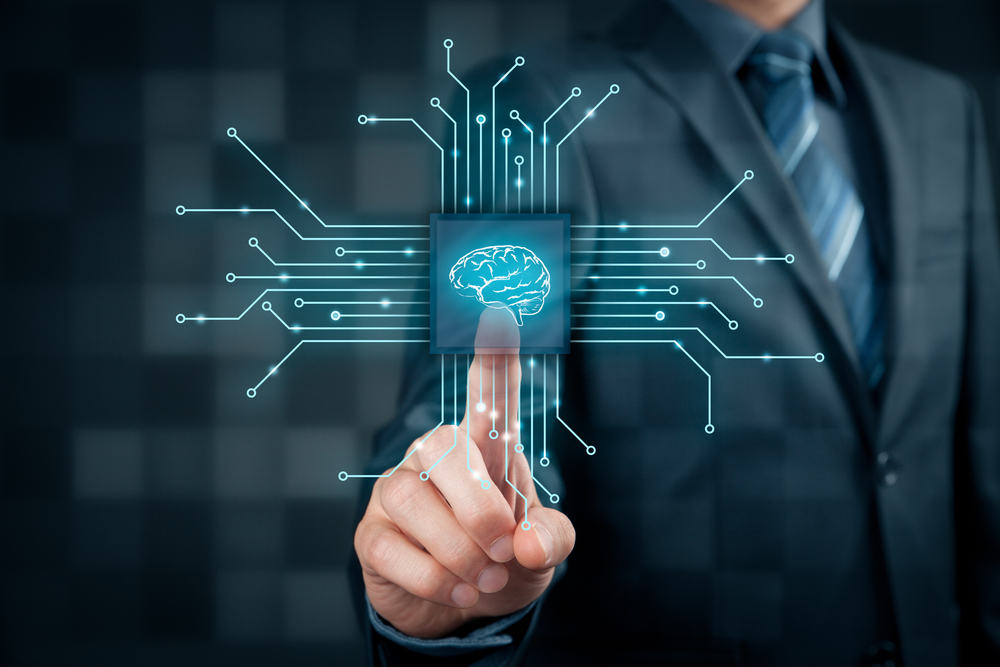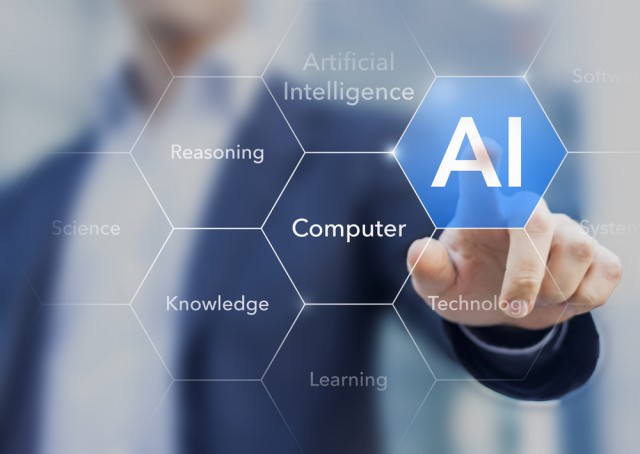
Hardware dependence -- what it is and why it's a problem [Q&A]
We're currently in the middle of a global chip shortage, while at the same time major hardware companies like Intel, NVIDIA and Arm are looking to dominate the hardware market for AI and ML applications.
This creates something of an issue where models have to be tuned and optimized according to specific hardware specifications and software frameworks, sacrificing the portability that the industry has come to take for granted..

The rise of the digital coworker [Q&A]
Talent shortages are affecting many industries at the moment and increasingly enterprises are turning to technologies like robotic process automation (RPA) to fill the gaps.
Now there's a new alternative in the form of the 'digital coworker', designed to work seamlessly alongside a company's human workforce. We spoke to Chaz Perera, CEO and co-founder of Roots Automation, to discover more about this latest innovation.

Is reinforcement (machine) learning overhyped?
Imagine you are about to sit down to play a game with a friend. But this isn’t just any friend -- it’s a computer program that doesn’t know the rules of the game. It does, however, understand that it has a goal, and that goal is to win.
Because this friend doesn’t know the rules, it starts by making random moves. Some of them make absolutely no sense, and winning for you is easy. But let’s just say you enjoy playing with this friend so much that you decide to devote the rest of your life (and future lives if you believe in that idea) to exclusively playing this game.

Twice as nice? Who needs a digital twin?
The internet is always abuzz with new technology trends, and anyone who follows them will be familiar with the terms "digital twin" or "digital twin of an organization". Although digital twins have been around for several decades, the rapid rise of Internet of Things (IoT) technology has made the concept more widely considered a tool of the future. So, as digital twins increasingly model systems of interconnected things, what potential does the technology hold to orchestrate processes, people, and things in a sophisticated way that’s beneficial for everyone?
This article defines what a digital twin is, and suggests where the technology is headed in our increasingly interconnected world.

New solution makes it easier to manage machine learning models
More than 80 percent of organizations do not have the necessary visibility and control over their machine learning models or how they're deployed throughout the ML model development lifecycle.
To deal with this problem, Iterative has built an open-source model registry solution that allows teams to easily manage models with full context around model lineage, version, production status, data used to train the model, and more.

APIs or custom AI? Everything businesses need to know before taking the leap
The call to implement Artificial Intelligence (AI) is becoming difficult for businesses to ignore. Offering the promise of increased organizational productivity, speed and accuracy, some applications can be greatly beneficial to firms across a wide variety of industries and sectors.
That said, companies will naturally have some difficulty deciding on how best to implement AI, and where to achieve the best return on investment in innovative technology. Given the inherent difficulties involved in building an AI solution, finding a solution that is the perfect fit can be a mammoth task, involving great resource and even greater costs. For some, the drawbacks might even outweigh the benefits; perhaps this is why less than 15 percent of firms have implemented AI in their operations.

What is needed to make digital transformation work? [Q&A]
Digital transformation is a topic that's been in the air for more than just a few years now, but the impact of the pandemic and the need for businesses to adapt has rapidly brought it back to the forefront.
It's also no longer just about IT. Digital transformation is an enterprise-wide endeavor, connecting and affecting all business units and requires a shift in mindset to take full advantage of the opportunities it offers.

The problem with AI model failure and how to avoid it [Q&A]
It's tempting to look at the hype surrounding AI and see it as a solution to all problems. But AI isn't perfect, there have been some notable failures, often due to poorly defined models.
What are the consequences of getting it wrong, and how can businesses ensure their AI projects stay on track? We spoke to Alessya Visnjic, CEO of AI observability specialist WhyLabs to find out.

Tying Artificial intelligence and web scraping together [Q&A]
Artificial intelligence (AI) and machine learning (ML) seem to have piqued the interest of automated data collection providers. While web scraping has been around for some time, AI/ML implementations have appeared in the line of sight of providers only recently.
Aleksandras Šulženko, Product Owner at Oxylabs.io, who has been working with these solutions for several years, shares his insights on the importance of artificial intelligence, machine learning, and web scraping.

Get 'Machine Learning For Dummies, 2nd Edition' ($18 value) FREE for a limited time
While machine learning expertise doesn’t quite mean you can create your own Turing Test-proof android -- as in the movie Ex Machina -- it is a form of artificial intelligence and one of the most exciting technological means of identifying opportunities and solving problems fast and on a large scale.
Anyone who masters the principles of machine learning is mastering a big part of our tech future and opening up incredible new directions in careers that include fraud detection, optimizing search results, serving real-time ads, credit-scoring, building accurate and sophisticated pricing models -- and way, way more.

Quantum is the future say enterprise execs
Those who fail to adopt quantum computing are in danger of falling behind, according to 75 percent of enterprise executives in a new survey.
The study, carried out by Wakefield Research for Zapata Computing, surveyed 300 leaders at large enterprises and finds that 69 percent either have adopted or plan to adopt quantum computing the near future.

Machine learning implemented by 68 percent of organizations
New research shows that 68 percent of chief technical officers (CTOs) have implemented machine learning at their company.
What's more the study, from software development company STX Next, reveals that 55 percent of businesses now employ at least one team member dedicated to AI/ML solutions, although only 15 percent have their own separate AI division.

Chat Commerce, machine learning and a stronger privacy focus -- eCommerce predictions for 2022
One of the side effects of the pandemic over the last two years has been a boom in online shopping. But is this something that's here to stay? And what are we likely to see happening in the eCommerce field in 2022?
Here is what some of the industry’s experts think will be next year's trends.

Why hybrid is the future of AI [Q&A]
Artificial intelligence, along with machine learning, deep learning and natural language understanding are increasingly being combined to create a hybrid approach.
Harnessing a range of techniques in this way helps data scientists to produce the best results. We spoke to Luca Scagliarini, chief product officer at expert.ai to find out more about how this approach can work and why we can expect to see it becoming more common.

IBM helps developers deploy AI and ML models on Kubernetes
Responding to a user request from an AI model -- 'model serving' -- is a key part of making use of the technology. But as the number of models expands serving them all raises problems and can lead to many being rarely used or abandoned.
Which is why IBM is introducing ModelMesh, a model serving management layer for Watson products that is designed to cope with high-scale, high-density and frequently-changing model use cases. It intelligently loads and unloads AI models to and from memory to strike an optimized trade-off between responsiveness to users and computational footprint.
